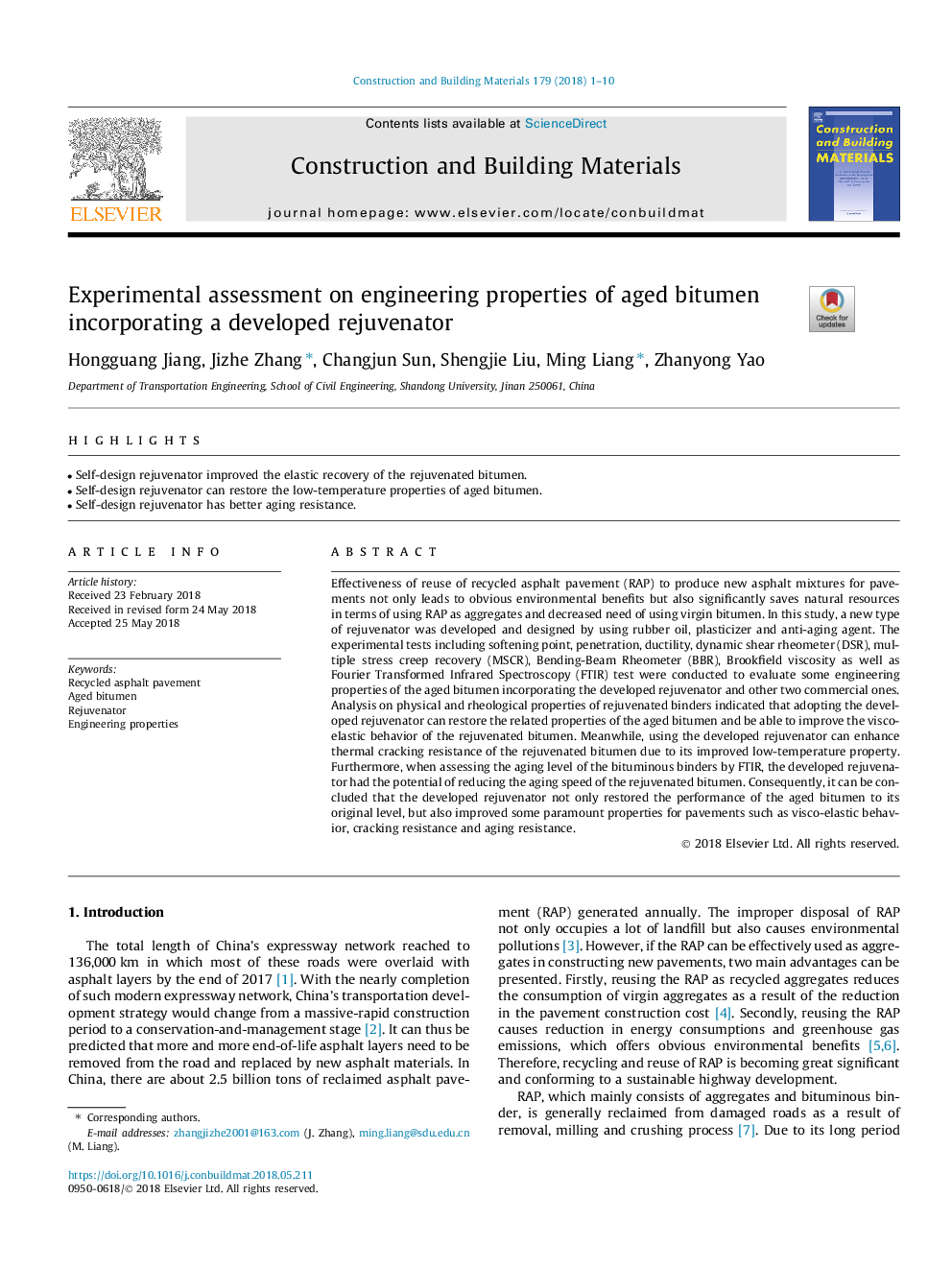| Article ID | Journal | Published Year | Pages | File Type |
|---|---|---|---|---|
| 6712513 | Construction and Building Materials | 2018 | 10 Pages |
Abstract
Effectiveness of reuse of recycled asphalt pavement (RAP) to produce new asphalt mixtures for pavements not only leads to obvious environmental benefits but also significantly saves natural resources in terms of using RAP as aggregates and decreased need of using virgin bitumen. In this study, a new type of rejuvenator was developed and designed by using rubber oil, plasticizer and anti-aging agent. The experimental tests including softening point, penetration, ductility, dynamic shear rheometer (DSR), multiple stress creep recovery (MSCR), Bending-Beam Rheometer (BBR), Brookfield viscosity as well as Fourier Transformed Infrared Spectroscopy (FTIR) test were conducted to evaluate some engineering properties of the aged bitumen incorporating the developed rejuvenator and other two commercial ones. Analysis on physical and rheological properties of rejuvenated binders indicated that adopting the developed rejuvenator can restore the related properties of the aged bitumen and be able to improve the visco-elastic behavior of the rejuvenated bitumen. Meanwhile, using the developed rejuvenator can enhance thermal cracking resistance of the rejuvenated bitumen due to its improved low-temperature property. Furthermore, when assessing the aging level of the bituminous binders by FTIR, the developed rejuvenator had the potential of reducing the aging speed of the rejuvenated bitumen. Consequently, it can be concluded that the developed rejuvenator not only restored the performance of the aged bitumen to its original level, but also improved some paramount properties for pavements such as visco-elastic behavior, cracking resistance and aging resistance.
Related Topics
Physical Sciences and Engineering
Engineering
Civil and Structural Engineering
Authors
Hongguang Jiang, Jizhe Zhang, Changjun Sun, Shengjie Liu, Ming Liang, Zhanyong Yao,
